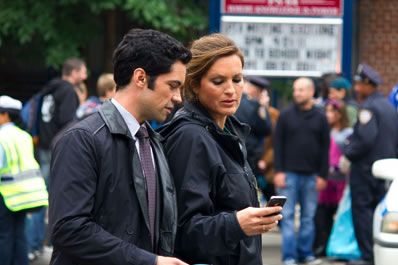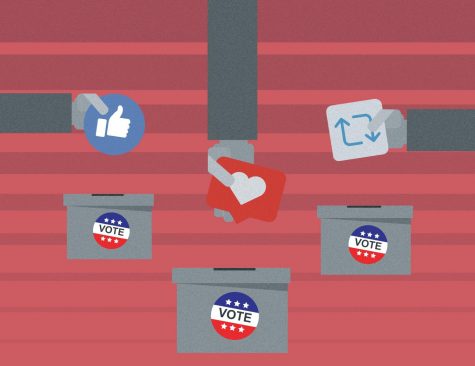Don’t Fall Victim to Crime Show Glamorization

Crime shows, such as “Law & Order: SVU”, glamorize crime fighting efforts. (Courtesy of Wikipedia)
January 29, 2014
By FELICIA CZOCHANSKI
ASSISTANT OPINION EDITOR

The glamorization of forensics on television, though piquing interest in the career, has warped the public’s perception of reality. It has become an American custom to come home from school or work and take the time to relax in front of the television. Each night, over 50 million viewers tune in to watch their favorite forensic shows, and over the past few years the number of viewers has increased by more than 1 million per week. Many of these shows, such as “NCIS” and “CSI,” run at the same time as the nightly news, giving people the convenient ability to flip back and forth between fiction and reality. However, people have fallen into the trap of believing that the glamorized portrayals of professions and investigative and legal processes shown on such shows are the same in reality.
Such shows are extremely popular among young people, and have seduced students to flock toward professions in forensic science. I had the good fortune of interviewing FBI investigator Dave Shafer about this topic and asked for his view on the rise in forensic majors.
Shafer said, “The glamorization of the career has enticed math and science majors into the career because it shows that people who were once called ‘geeks’ can actually be considered ‘cool’ when they grow up.”
This was not the view that people had of such professions before the reality-distorting shows became so popular. Unfortunately, not many wannabe crime fighters now entering the field actually know what they are getting themselves into.
New Jersey detective Randy MacConnell explained that “on television shows, the CSI investigator is portrayed as going around the crime scene, conducting the interviews and chasing down bad guys. But in reality, what they actually do is examine the crime scene, write up a detailed report and testify the findings and process methods used at the scene in court.”
More than anything, forensic shows are guilty of creating falsified representations of careers, tricking viewers into believing that they are something much different than what they are in reality.
In response to this, Shafer added that his job was to “assess the crime scene and take notes. There are detectives and certified, trained experts who collect evidence and DNA. I find it extremely frustrating to watch incorrect portrayals of this on television.”
Colleges and universities across the country are not helping repudiate this “CSI Effect”— the courtroom phenomenon whereby the public has unrealistic expectations of forensics due to television portrayals. Many schools have been happy to accommodate this sudden interest with light work programs that teach students more about the false profession shown on television than about the profession as it is in truth: work in the nation’s crime labs.
In a Pittsburgh Post-Gazette article entitled “‘CSI Effect’ Frustrated the Real Forensic Experts” Paula Ward says, “One of the most common tests is DNA. The tests performed on the shows are done quickly in the lab and are then presented to the jury as evidence. This frustrates lab analysts in real life because the shows make what is in reality long, meticulous work seem to be a simple task that could easily be completed in under an hour.”
The scary part about this fallacy is that, in reality, the backlogs for DNA tests could actually take months, even years.
It is unfortunate that society has so easily fallen for the glamorized way that attractive actors are scripted to portray real-life professions on forensic shows. Although the shows are meant as a source of entertainment and not information, people perceive them as the truth—not understanding that cases are not solved only with a group of four or so people over the course of one hour. The shows have raised awareness of the importance of such careers, but people should also know that what is shown on a flat screen is not the same as what occurs in reality.
Felicia Czochanski, FCRH ’17, is an undeclared major from Metuchen, N.J.











If you want a picture to show with your comment, go get a gravatar.